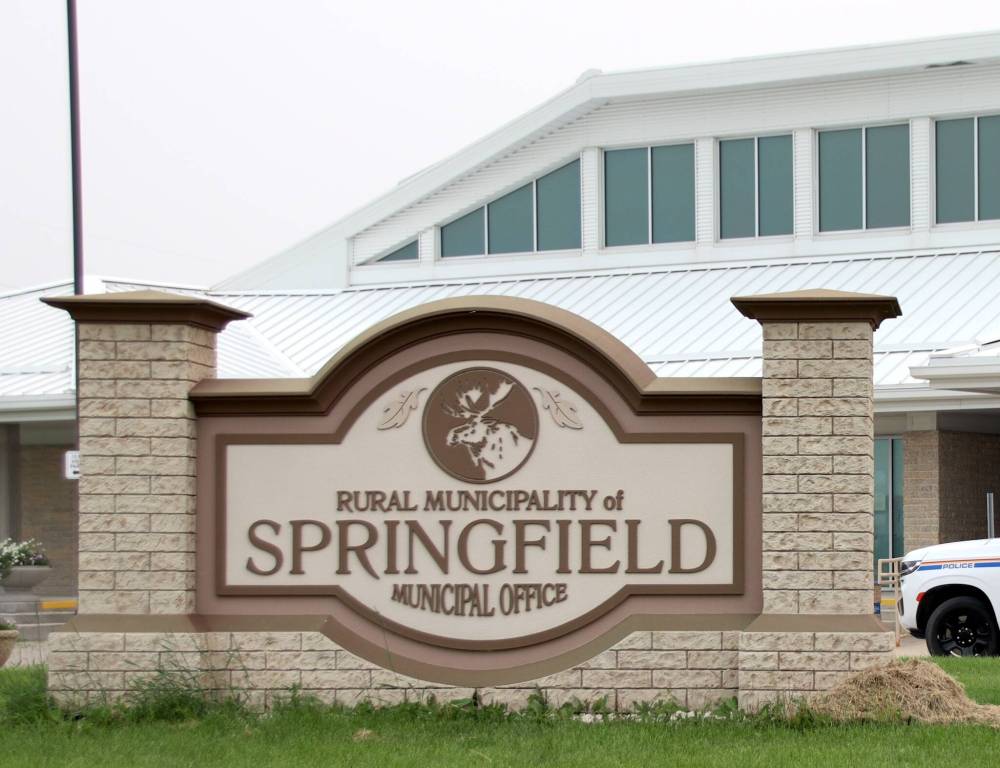Residents fight Springfield’s ban on recording council meetings
Advertisement
Read this article for free:
or
Already have an account? Log in here »
To continue reading, please subscribe:
Monthly Digital Subscription
$0 for the first 4 weeks*
- Enjoy unlimited reading on winnipegfreepress.com
- Read the E-Edition, our digital replica newspaper
- Access News Break, our award-winning app
- Play interactive puzzles
*No charge for 4 weeks then price increases to the regular rate of $19.00 plus GST every four weeks. Offer available to new and qualified returning subscribers only. Cancel any time.
Monthly Digital Subscription
$4.75/week*
- Enjoy unlimited reading on winnipegfreepress.com
- Read the E-Edition, our digital replica newspaper
- Access News Break, our award-winning app
- Play interactive puzzles
*Billed as $19 plus GST every four weeks. Cancel any time.
To continue reading, please subscribe:
Add Free Press access to your Brandon Sun subscription for only an additional
$1 for the first 4 weeks*
*Your next subscription payment will increase by $1.00 and you will be charged $16.99 plus GST for four weeks. After four weeks, your payment will increase to $23.99 plus GST every four weeks.
Read unlimited articles for free today:
or
Already have an account? Log in here »
Four residents of Springfield say their municipal government doesn’t have the legal right to bar the public from recording council meetings.
Daniel Page, Karen Laronde, Janet Nylen and Gloria Romaniuk have enlisted the help of constitutional lawyers in their legal battle against the rural municipality.
They filed a notice of application in June in which they want the Manitoba Court of King’s Bench to rule the municipality is either violating the provincial Municipal Act or their right to free expression under the Charter of Rights and Freedoms.

JURA MCILRAITH / THE CARILLON
Residents of the RM of Springfield are in a legal battle against their municipal government which is trying to bar members of the public from recording council meetings.
“This case concerns the recording of public meetings of municipalities and its importance to freedom of expression,” reads a legal brief filed this week in support of the application.
The application asks the court to declare that the applicants have the right to record the meetings, as long as they don’t disrupt proceedings.
The document claims the chief administrative officer of Springfield, Colleen Draper, told a member of the public who was recording proceedings on Feb. 4, that only media outlets were allowed to record council meetings as long as they obtain approval 48 hours prior to the meeting, as per the RM’s procedural bylaw.
The court filing argues the bylaw does not define who qualifies as media and does not explicitly bar the public from recording.
On Feb. 11, Mayor Patrick Therrien said cellphone recordings of council were prohibited because they are too disruptive, the court filing claims.
The RM has said audio recordings are made public 48 hours after meetings; the court filings argue the quality of the audio is poor.
One of the applicants, Page, has regularly recorded meetings and posts on social media platforms for the purposes of transparency and accountability, the court filings say.
The legal brief claims the RM’s move infringes on freedom of the press and that modern technology has expanded the traditional definition of media.
The latest filing argues that constitutional protections surrounding the freedom of the press must focus on news-gathering, rather than those who may qualify as media personnel, as a result of modern technology such as smartphones.
“The applicants submit that the ability to record… is an essential part of news-gathering activities. The ability to record public municipal proceedings and publish them is of immense value to furthering democratic discourse and truth seeking,” reads the recent legal brief.
“If the ability to record is completely prohibited, it would render the ability to publish and broadcast the news meaningless.”
The RM has yet to reply to the application with court filings of its own.
erik.pindera@freepress.mb.ca

Erik Pindera is a reporter for the Free Press, mostly focusing on crime and justice. The born-and-bred Winnipegger attended Red River College Polytechnic, wrote for the community newspaper in Kenora, Ont. and reported on television and radio in Winnipeg before joining the Free Press in 2020. Read more about Erik.
Every piece of reporting Erik produces is reviewed by an editing team before it is posted online or published in print — part of the Free Press‘s tradition, since 1872, of producing reliable independent journalism. Read more about Free Press’s history and mandate, and learn how our newsroom operates.
Our newsroom depends on a growing audience of readers to power our journalism. If you are not a paid reader, please consider becoming a subscriber.
Our newsroom depends on its audience of readers to power our journalism. Thank you for your support.

